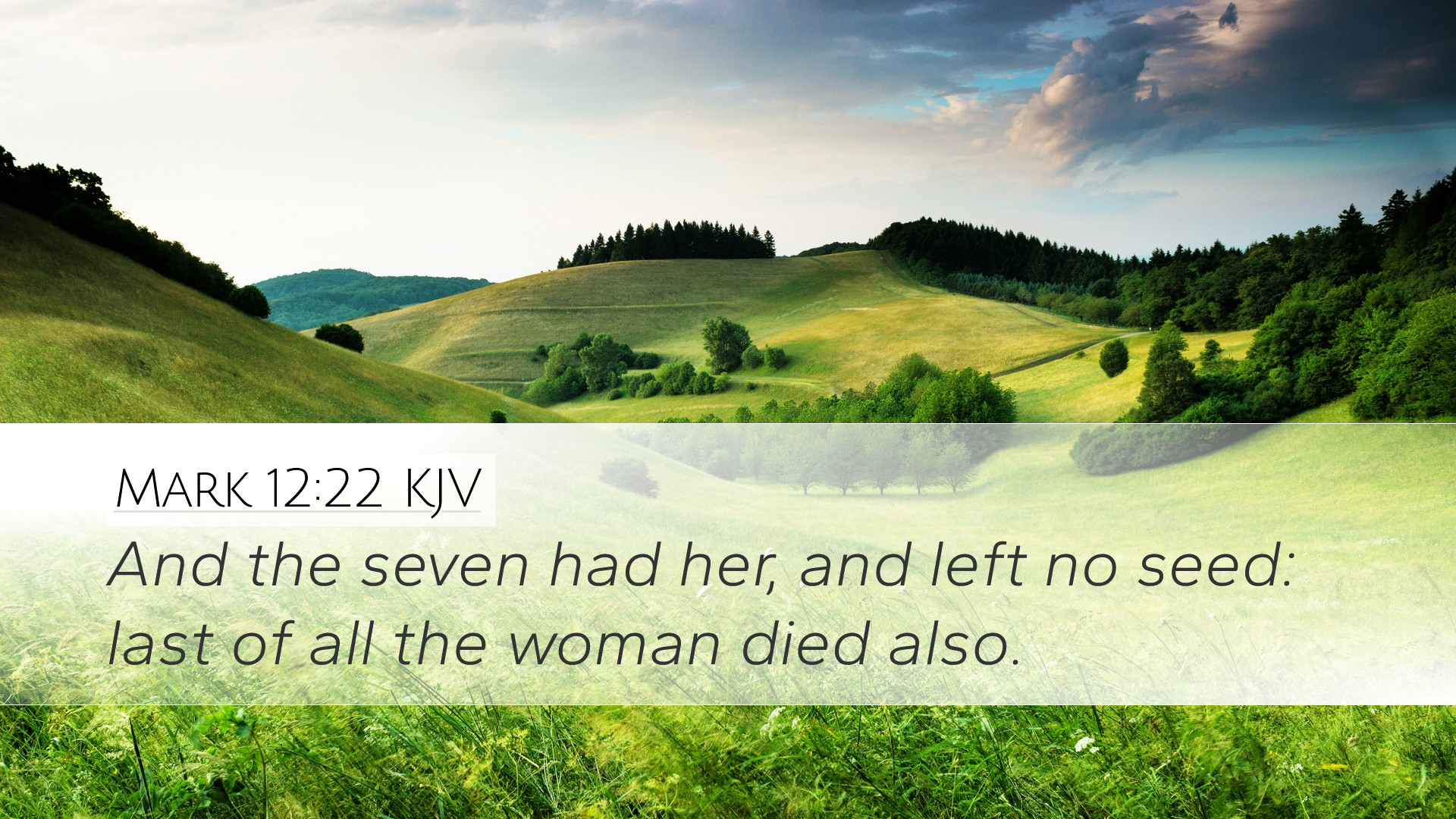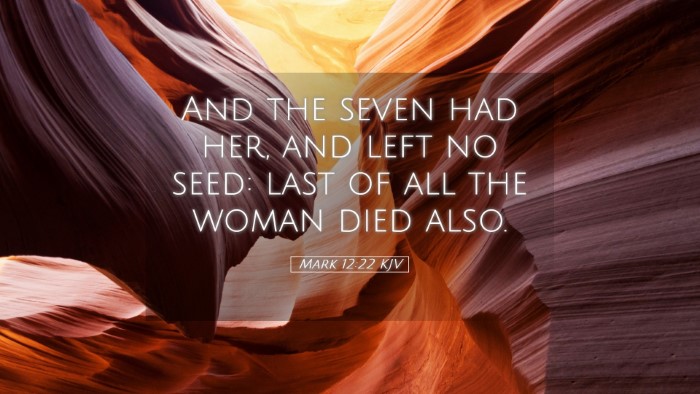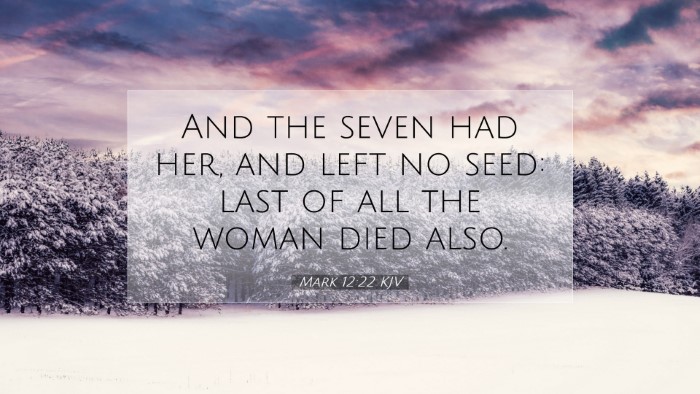Commentary on Mark 12:22
Verse: "And the seven had her, and left no seed. Last of all, the woman died also."
Introduction
This passage from Mark 12:22 presents a scenario constructed by the Sadducees to challenge Jesus’ teachings on the resurrection and to underscore their disbelief in life after death. What unfolds is a profound discussion of the nature of resurrection and the life to come. Commentaries from Matthew Henry, Albert Barnes, and Adam Clarke provide insights to help deepen our understanding of this complex exchange.
Context of the Passage
Understanding this verse requires knowledge of the broader context. The Sadducees, a Jewish sect that denied the resurrection, posed a question to Jesus about a woman who married seven brothers, all of whom died without leaving offspring. Their intent was to highlight what they believed to be a logical absurdity in the concept of resurrection.
Matthew Henry's Insight
Matthew Henry elucidates that this question posed by the Sadducees stems from a misunderstanding of both the Mosaic Law and the resurrection itself. He notes that the scenario—concerning levirate marriage—was meant to ridicule the notion of life after death. Henry emphasizes that their inquiry reveals a lack of understanding of God's power and the ultimate purpose of resurrection, which is far beyond human reasoning.
Albert Barnes' Commentary
Albert Barnes draws attention to the implications of the Sadducean argument. He points out that their hypothetical situation, although elaborate, serves to diminish the hope of resurrection. Barnes asserts that this verse illustrates the futility of human reasoning when it comes to divine matters. He posits that the resolution of the Sadducees’ conundrum lies in recognizing the nature of the resurrection where earthly relationships and roles are transcended.
Adam Clarke's Analysis
Adam Clarke's commentary digs deeper into the legal nuances surrounding the levirate marriage law as outlined in Deuteronomy 25:5-6. His analysis highlights the cultural and legal obligations intended to preserve family lineages in ancient Israel. Clarke explains how the Sadducees misconstrued these laws, leading to their ridiculous argument against the resurrection. He underscores that Jesus' response reveals the inadequacy of attempts to confine divine truths to human logic.
Theological Implications
This verse not only illustrates a confrontation between Jesus and the Sadducees but also raises significant theological questions about the nature of life, death, and resurrection. It challenges the audience to consider the limitations of human understanding in the face of divine revelation.
- The Reality of the Resurrection: The question posed by the Sadducees acts as a launching pad for Jesus to expound upon the reality of the resurrection, affirming that it transcends human logic.
- Nature of Relationships in Heaven: The Sadducees fail to understand that earthly institutions, including marriage, have a different significance in the eternal state.
- Divine Power: This passage serves as a reminder of the omnipotence of God, who is capable of creating a new order of existence beyond the current worldly paradigms.
Application for Believers
For pastors and theologians, Mark 12:22 presents a profound opportunity to explore the nature of resurrection and eternal life in their teachings. It challenges believers to recognize the limitations of earthly wisdom and encourages them to embrace the mysteries of God’s kingdom with faith.
- Embrace Mystery: Believers are encouraged to accept that some of God's truths transcend human understanding, advocating a faith that believes in the resurrection despite unanswered questions.
- Hope in the Eternal: This passage can encourage believers to maintain hope in the eternal life God promises, reminding them that earthly struggles and constraints are temporary.
- Engage with Doubters: For those ministering to skeptics, this narrative invites thoughtful engagement and the opportunity to communicate the core truths of the Christian faith with clarity and compassion.
Conclusion
Mark 12:22 invites us into a deeper understanding of resurrection—a central tenet of the Christian faith. Through the lens of Matthew Henry, Albert Barnes, and Adam Clarke, we find rich insights that encourage believers to grapple with the deeper realities of divine truth. This verse serves not only as a historical account but as a profound opportunity to affirm one’s faith in God's promises beyond the veil of death.


